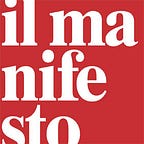Erdogan assails his latest ‘terrorist’ threat: journalists
Turkey. Three days before new elections in Turkey, Recep Tayyip Erdogan is shuttering more media sympathetic to the opposition.
by Fazila Mat, Istanbul, il manifesto global, Oct. 29 2015
Three days before the early elections in Turkey, AKP has launched a new attack on the press. This time in the crosshairs of the conservative government is Koza İpek Holding, a media group close to the Islamist movement of Fethulla Gülen, whose falling out with President Recep Tayyip Erdogan forced him into exile in the United States.
Bugun TV and Kanaltürk, two Koza İpek television networks, were shut down Wednesday after police forced their way into headquarters in Istanbul, arresting a journalist and dispersing a protesting crowd outside with tear gas.
The police raid followed a court order from the capital Ankara to depose the leadership of 22 Koza İpek subsidiaries, accusing the company of financing the “Fethullah Terrorist Organization,” or FETÖ, as Erdogan’s Justice and Development Party (AKP) refers to the Gülen Movement.
The opposition, however, asserts the move was politically motivated, pointing to the fact that most of the administrators appointed to take over the company’s’ operations are members of the AKP or advisers to the party’s ministers. And, in a prelude to what was coming, the government had banned seven channels a few days ago that are close to the Gülen Movement, including Bugun and Kanaltürk.
‘A threat to all’
Beyond the showdown between the AKP and the Gülen Movement — which has been going on for a year and a half and concerns a power struggle between two camps on the Islamic right — the very fact that two television channels critical of the government have been blacked out days before a critical election makes this troubling situation even more alarming.
“Such a situation represents a threat to other news outlets that aren’t pro-government,” says Gülseren Adakli, professor of communication sciences at the University of Ankara. “This executive, if he deems it necessary, could put his hand on the Doğan Media Group or the newspaper Cumhuriyet.”
It’s already happening: Mainstream media companies Doğan and Cumhuriyet have already been the focus of attacks. Several journalists working for CNN Turk and the newspaper Hürriyet (both popular outlets under Doğan) are at the center of a smear campaign spearheaded by journalists close to the government and an anonymous network of social media trolls towing the AKP line.
The Collective Memory, a social media research group, has drawn up a map of connections between a number of these Twitter accounts, establishing the existence of no less than 113 profiles that all revolve around the name of a presidential adviser, Mustafa Varank. His name was later discovered to be related to the decision to ban the seven channels from digital television platforms.
A well-known broadcaster for CNN Turk, Ahmet Hakan, was recently physically assaulted, while the mogul Aydin Doğan, owner of the conglomerate, was accused of supporting the PKK (Kurdistan Workers Party) by journalists sympathetic to AKP.
All this because during the previous election campaign these media gave space and voice to the opposition and the pro-Kurdish People’s Democratic Party — the party that on June 7 blocked the AKP (for the first time in 13 years) from holding a majority of seats.
Employees and the editor of Cumhuriyet, who a few months ago published an article with photos alleging the government sent weapons to jihadist groups in Syria, are still on trial. The newspaper was also the subject of a police raid and an attempted attack by violent extremist groups for its position on publishing cartoons of Mohammed, after the massacre at Charlie Hebdo.
But the list goes on, extending to at least 20 news sites supportive of the PKK and the Kurdish political movement — or just any voice of the left. Some websites of LGBT and atheist magazines were shut down by the Information and Communication Technologies Authority, whose head is a former member of the Turkish intelligence.
The selfie president
Not to mention the case of Nokta magazine, which was raided and banned for publishing a mocked-up cover with Erdogan taking a “selfie” in front of a soldier’s coffin. (It was a reference to Erdogan telling families of dead soldiers to be “happy” for their child’s martyrdom in the fight against the PKK, which the government considers a “terrorist organization.”)
The crime of insulting the president is now one of the most frequent causes of action, and it concerns everyone: from ordinary citizens and kids posting on Facebook to the managers of newspapers, like Bülent Kenes, the editor of Today’s Zaman, arrested for tweeting critically of Erdogan.
As the journalist Umur Talu said, “The problem of freedom of thought and expression is not a matter that concerns only the field of writing and journalism.”
Two things, he said, make the social tension unbearable. “The first is the direct pressure exerted on those who refuse to submit to such pressure. The second, and one on which we focus less, concerns the pressure imposed and the threat that has taken us hostage — voluntarily or not — because millions of people are forced to surrender.”
Meanwhile, polls indicate the election Sunday will yield a result similar to the one on June 7, but AKP Deputy Secretary Mehmet Ali Şahinsaid vowed that, “if necessary, we will hold elections for a third time.” It’s even rumored that the vote could be postponed. But they can’t change the facts on the ground: More than half the population of Turkey is no longer willing to accept this situation.
- Originally published in Italian at il manifesto on Oct. 29 2015
Originally published in English at il manifesto global.
